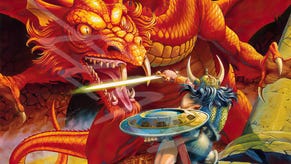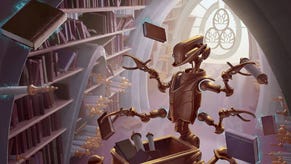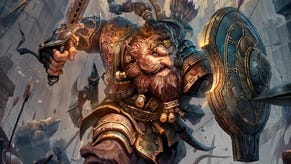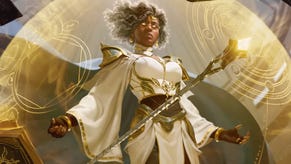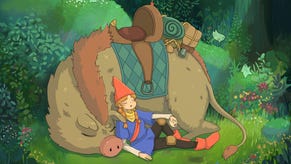Tabletop roleplaying taught me that failure is okay - and often more interesting
1 to watch.
Once upon a time, in a dark, dank cavern sat a handsome half-elf ranger and a tenacious halfling pirate bard. They were investigating a chest, aloft in the middle of the cave. As the rest of the party watched on anxiously, the ranger and bard approached. The ranger took some time to scrutinise the wooden carvings while the bard inspected the chest’s locking mechanism. The ranger’s investigation of the carvings were inconclusive, but the bard noticed that the lock was armed with a powdered blue poison. Time to crack open the chest. Dice tumbled in the ether. Suddenly, the bard slapped the top of the chest, declaring “This bad boy can fit so much blue powder” - springing the trap and filling the room with noxious poison.
In case it wasn’t obvious, our poor pirate bard managed to roll a natural 1 at a pivotal moment. The nat 1, or critical fumble, can be an excruciating moment for both players and GMs in a whole host of different tabletop games, as it represents a character truly biffing it at a critical junction. That once easy-to-navigate stream is now sweeping you away. The formerly amiable shopkeep is now kicking you out. The seemingly perfectly-shot arrow has now ricocheted straight back into your knee.
As players, our instinct is to try to do everything in our power to mitigate this risk, either by using in-game feats to avoid fumbling or, more nefariously, lying and pretending we didn’t fumble at all. Whether you choose to deny fate via cheating or clever rules-lawyering, one thing you are certainly doing is cheating yourself, both within the game world and out of it.
A critical fumble can stay with you far longer than any successful rolls you may achieve.
What a critical fumble represents is something that in real life we have little to no control over - how we fail at something. It represents an opportunity to create a game moment so monumentally funny, thought-provoking or heartbreaking that it will stay with you far longer than any successful rolls you may achieve.
Take the example of the pirate bard. That chest, which served more as flavour than a plot hook, ended up poisoning the handsome ranger. Over the next few sessions, the party then had to investigate the poison and where to find an antidote. From there they sailed across a frozen sea, fought an animated sea tree, met a whole bunch of creepy NPCs and battled a wraith inside of a frozen laboratory, all to help their one friend. What once was a failure became an epic story against a ticking clock that brought the party together and allowed the players to explore their characters in new and interesting ways.
A natural 1 can become a teaching tool for coping with failures out in the real world.
The natural 1 can help you become quick-witted and an excellent problem solver. Fallen into the river you were trying to cross? Now you have to think of an inventive way of not drowning. Made the shopkeep angry? Think of a way to calm the situation down, or use the ruckus to your advantage. Taken an arrow to the knee? Well, that just hurts. But not only is a natural 1 excellent for sharpening those roleplaying skills, it can become a teaching tool for coping with failures out in the real world.
When I was 18 I desperately wanted to study theatre at a prestigious theatre school. I got an audition, went in and said my lines, and thought I nailed it. That afternoon I got a rejection email. Was I going to curl up and cry about it? Definitely. I was crushed. It was absolutely okay to cry about it. But then I pulled myself together and started to think of the opportunities this critical fumble had presented me. Instead of theatre, I studied music at the same university as my then-girlfriend. She’s now my wife. I met amazing musicians, formed an awesome band and went on tours, worked under unbelievably talented professors and gained a whole different perspective politically, socially and emotionally. I am always ready and willing to learn how to be a better world citizen. I am the person I am today because of that failure, not despite it.
So when you’re attempting that tricky manoeuvre or trying to convince that guard of your innocence and the dice god curses you with that fated 1, don’t be distraught. Be delighted. You are about to enjoy, discover and learn one of the most valuable lessons tabletop games can teach you. A lesson that will not only make for excellent memories, but will help shape your world view and see failures for what they really are: an opportunity down an alternative path.


